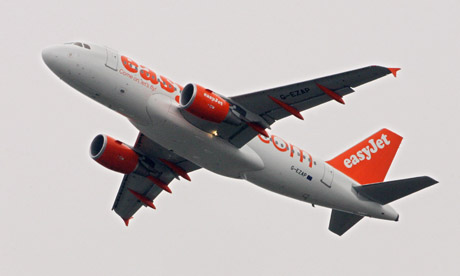
Ryanair and easyJet, the low-cost airlines behind the huge growth in air travel over the past decade, have backed the industry's pledge to halve carbon dioxide emissions by 2050.
No-frills carriers have been berated by green campaigners as flag-bearers for the "binge-flying" culture that erupted in the wake of industry deregulation in the late 1990s, sparking often furious exchanges with Ryanair's outspoken chief executive, Michael O'Leary.
But Ryanair softened its stance yesterday, saying it was "open" to proposals for a cut in aviation emissions while easyJet urged carriers to achieve the reduction through developing greener airplanes rather than spending billions of pounds on carbon dioxide offsets and permits.
A delegation of aviation executives, led by British Airways boss Willie Walsh, told the United Nations forum on climate change that the industry can meet the 2050 target through a global emissions trading scheme and improvements in airplane technology.
Ryanair, which as Europe's largest short-haul airline carries 60 million passengers a year, backed the proposals. "If it takes into account airlines such as Ryanair that have already taken great steps to reduce emissions by running fuel-efficient aircraft, we are open to it," said a Ryanair spokesman.
EasyJet, Europe's second largest low-cost carrier, backed the 50% target but urged the industry to achieve the cut without the help of carbon offsets or carbon credits, which Walsh has admitted will be necessary. An easyJet spokesman said an absolute reduction of 50% could be achieved by setting minimum guidelines for aircraft emissions standards, such as those being introduced for the European car market, and a reform of aviation taxes.
"The target is the right one to go after, but rather than using offsets and buying emission permits from other sectors we should be doing this on our own by reducing absolute emissions. To do that we need minimum [aircraft emissions] standards and the right fiscal incentives," said an easyJet spokesman.
IATA had considered a 50% reduction in absolute terms before deciding that it would need the help of carbon offsets and carbon permits – in effect buying off some of its emissions.
The reliance on offsetting and permits has been criticised by environmental campaigners, who accused the aviation industry of using greener sectors to foot the bill for its carbon costs. The Aviation Environment Federation said the plan's emphasis on net rather than absolute emissions exposed serious flaws in the strategy. "Carbon offsets are a significant part of the aviation industry's menu, but are no substitute for real cuts in emissions," said Jeffrey Gazzard of the AEF in a letter to the Guardian.
Walsh has estimated joining a global trading scheme will cost airlines about £3bn a year, compared with the industry's annual revenues of $455bn (£278bn), as carriers acquire the necessary carbon offsets and permits to keep their emissions reduction targets on track. The BA boss has warned that fares will "have to" rise to cover the £3bn bill.

